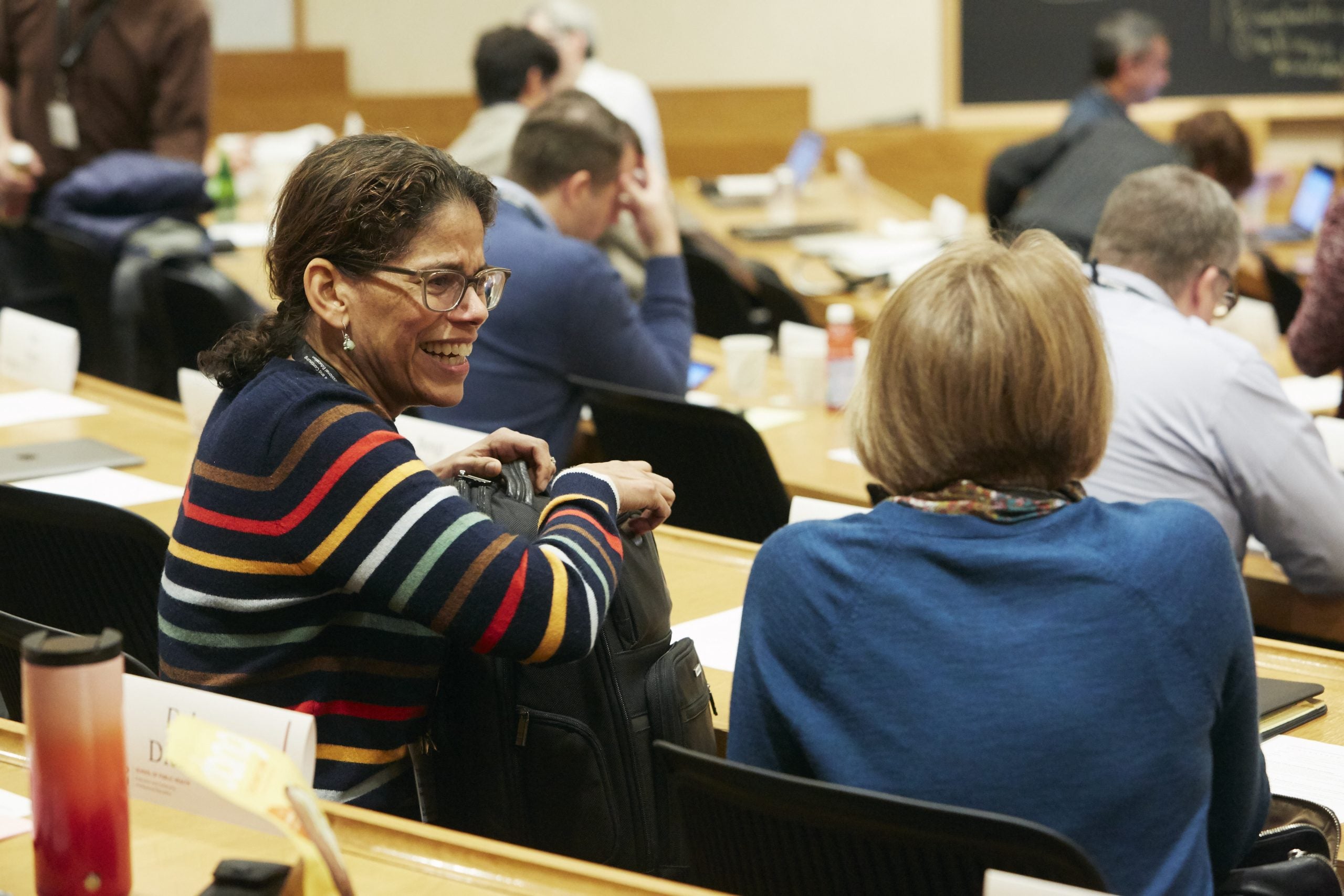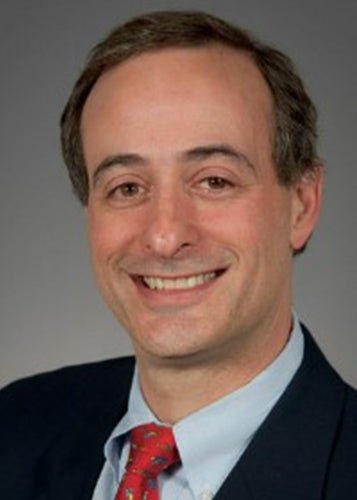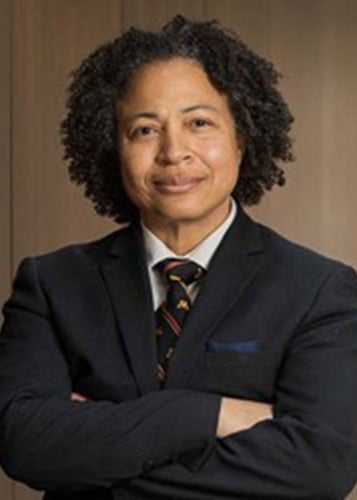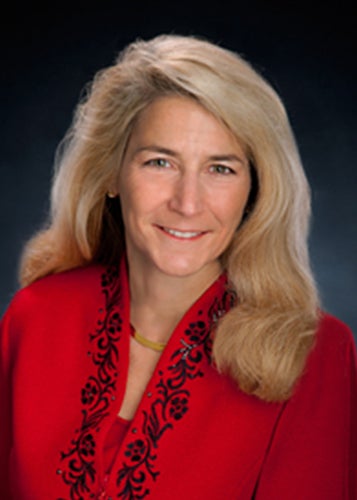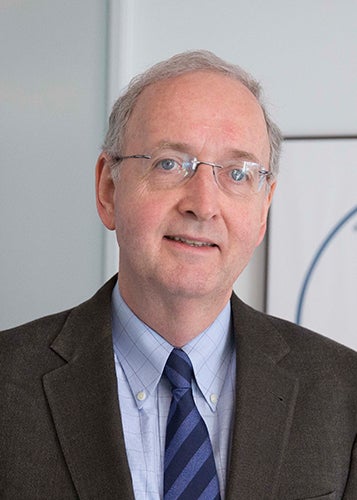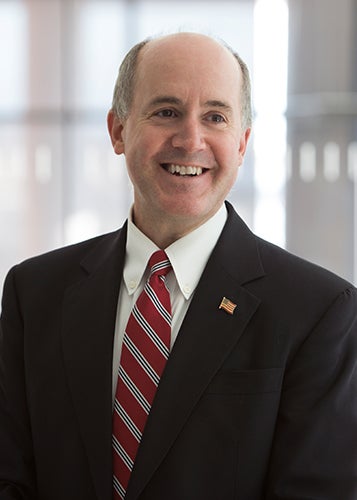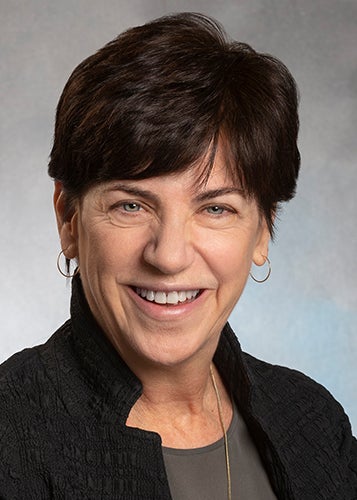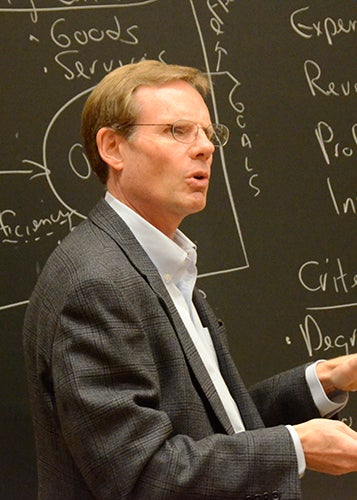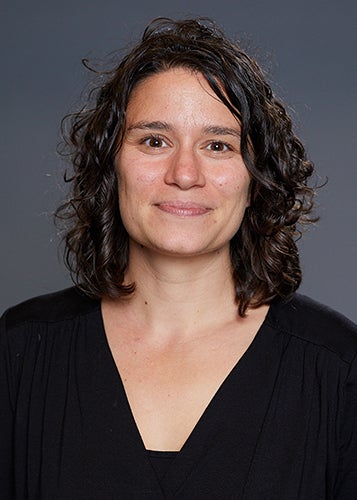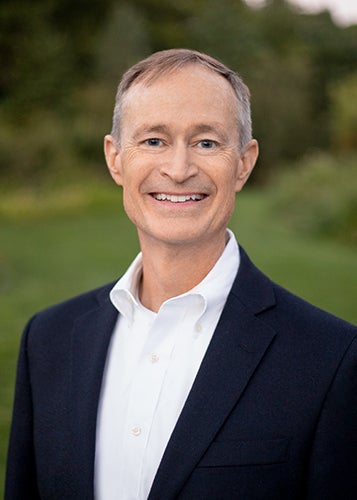The program far exceeded my expectations because of the depth and breadth of the topics. Would recommend this program to novice and experienced Chairs alike. There is something substantive for every level.
Program for Chairs of Clinical Services
Program Overview
Navigating Complex Responsibilities: Role of Chairs in Clinical Departments
Chairs of major clinical departments traditionally have faced complex responsibilities because of their multiple tasks – patient care, teaching, research, and administration.
As academic health centers experience unprecedented disruption and change as a result of the COVID-19 pandemic, chairs are being asked to become more extensively involved in institutional decision making with regard to programs, staffing, operating and capital budgets, and other issues. These responsibilities are in addition to their traditional concerns within their own departments. At the same time, chairs have to consider to a greater degree the relationship between institutional priorities, departmental decisions, and collaboration with other services. These new tasks call for new leadership and managerial skills.
Enhancing Leadership Skills: Program for Chairs of Clinical Services (PCCS)
The Program for Chairs of Clinical Services (PCCS) brings together chairs of major clinical departments in teaching hospitals and health systems and an experienced interdisciplinary faculty for two weeks of intensive and systematic study of some of the critical leadership and management issues facing chairs, their departments, and teaching hospitals.
Curriculum
The curriculum of the program is organized around the following interrelated courses taught by a faculty experienced in executive education for physicians and other key decision-makers in the health system:
- Competitive Strategy
- Health Policy
- Financial Analysis and Control
- Innovative Problem Solving
- Operations Management
- Organizational Issues
- Leadership Challenges
Take the Next Step in Your Career Evolution with the
Executive Leadership in Health Care Certificate of Specialization
Program for Chairs of Clinical Services is one of the nine programs eligible for the Executive Leadership in Health Care Certificate of Specialization, which is specially designed for those who desire to learn how to excel at managing and leading groups in a health care setting. The Certificate consists of three* programs—offered both online and on-site in Boston, MA—designed and taught by Harvard Faculty and prominent health care leaders to prepare you for the future of an ever-changing health care industry.
For more information, visit our Executive Leadership in Health Care Certificate of Specialization page.
*Program for Chairs of Clinical Services and Leadership Development for Physicians in Academic Health Centers each count as two programs towards the certificate.
A carefully integrated curriculum permits participants to examine fundamental managerial issues from the perspective of several disciplines. A new program initiative or downsizing proposal, for example, may raise managerial problems concerning departmental and institutional strategy; the application and utility of systems analysis and quantitative analytical methods; basic economic trends and legal constraints; financial analysis and control; and organizational behavior, design, and development.
The overriding purpose for learning concepts, techniques, and skills in any of the management disciplines in this program is to understand their managerial use and limitations. For example, the course in financial analysis and control does not aim to develop expert accountants or to provide accounting skills, per se. The purpose in learning to analyze the cost and financial implications of program decisions, for instance, is: (a) to better understand the fundamental methodological issues involved, the driving factors behind any particular analysis, the limits of such analysis, and the need to blend this with clinical, strategic, and other non-financial judgements; and (b) to improve the ability of a participant both to manage staff and to interact more effectively with the fiscal affairs personnel in their hospital, health system, or medical school.
Innovative Case-Based Learning: Mastering Leadership Through the Case Method
The principal method of instruction in the program is the case method, a technique pioneered and refined at Harvard Business School. Most of the cases present actual problem situations familiar to chairs of clinical departments. Special case materials based on field studies of specific issues faced by service chairs have been and continue to be prepared by the faculty.
The case method confronts the participant with an actual management problem, halted at a point where decisions must be made, and forces the participant to choose a course of action. Participants go through a three-step study process. First, participants study each case independently. Participants then meet in small discussion groups to test their individual analyses against those of their peers. Finally, the entire class discusses the case, with the professor as catalyst and guide. The professor points out considerations the class has overlooked; elicits from participants the lessons of experience; pursues each line of investigation to its conclusion; and finally, summarizes the discussion and draws out the major lessons it has taught.
Assigned readings and guest lecturers supplement and augment the use of cases. In addition, an important part of the learning process occurs during the informal exchange of insights and experience among participants and faculty.
Program organization
Classes and discussion groups are scheduled six days a week. Preparation for classes averages six hours a day. Registration is scheduled for 3:00 – 4:00 pm on the first day of the program. The following Sunday is free except for cases to be prepared for Monday’s classes. Participants are required to free themselves of professional and family responsibilities for the period of the program so that full attention can be devoted to the educational experience.
Program Objectives
The program’s overall objective is to enhance and develop participants’ leadership abilities and effectiveness. This is accomplished by providing broader understanding of their responsibilities as leaders; perspective on some of the critical leadership and management issues they face; and understanding and awareness of concepts and techniques relevant to management.
Upon Completion of the Program, Participants Will Have Gained:
- Increased understanding of their responsibilities and tasks as leaders of clinical departments and members of the leadership group of their institution
- A broader appreciation of and insight into the external challenges facing, and changes occurring in, academic medical centers; the range of options and responses available; and the implications for their own institution, clinical service, and academic program
- New perspectives on issues they face currently and on those which arise in the future
- Knowledge of relevant concepts and techniques in several key management disciplines
- New methods to analyze problems and an enhanced capacity to identify the critical questions
- Greater effectiveness as departmental and institutional leaders in formulating and implementing new initiatives and managing change
Credits and Logistics
Accommodations
January 2025
Please check back for updated information.
Program Location
Harvard T.H. Chan School of Public Health
FXB Building
651 Huntington Avenue
Boston, MA 02115
617.432.2100
The program takes place at Harvard T.H. Chan School of Public Health, located in the heart of the Harvard Longwood Campus in Boston. Public transportation is also readily available to the city’s many shopping districts, museums, and restaurants.
For directions, please click here.
Continuing Education Credit
The Harvard T.H. Chan School of Public Health is accredited by the Accreditation Council for Continuing Medical Education (ACCME) to provide continuing medical education for physicians.
The Harvard T.H. Chan School of Public Health designates this live activity for a maximum of 4.3 AMA PRA Category 1 Credits™. Physicians should claim only the credit commensurate with the extent of their participation in the activity.
Harvard T.H. Chan School of Public Health will grant 4.3 Continuing Education Units (CEUs) for this program, equivalent to 42.75 contact hours of education. Participants can apply these contact hours toward other professional education accrediting organizations.
All credits subject to final agenda.
All participants will receive a Certificate of Participation upon completion of the program.
Faculty
Current faculty, subject to change.
Jeff Levin-Scherz, MD, MBA, FACP
Program Director
January 19 – 31, 2025Department of Health Policy and Management
Harvard T.H. Chan School of Public Health
Assistant Professor
Harvard Medical School
Population Health Leader
Department of Health Policy and Management
WTW Health & Benefits;
Renee Crichlow, FAAFP, MD
Faculty
January 19 – 31, 2025Codman Square Health Center
Linda A. Cyr, MS, PhD
Faculty
January 19 – 31, 2025Department of Health Policy and Management
Harvard T.H. Chan School of Public Health
Eric Dickson, MD, MHCM, FACEP
Faculty
January 19 – 31, 2025UMass Medical School
President and CEO
Executive Office
UMass Memorial Health Care
Leonard J. Marcus, PhD
Faculty
January 19 – 31, 2025National Preparedness Leadership Initiative
Harvard University
Director
Program for Health Care Negotiation and Conflict Resolution
Harvard T.H. Chan School of Public Health
Lecturer on Public Health Practice
Department of Health Policy and Management
Harvard T.H. Chan School of Public Health
John E. McDonough, DrPH, MPA
Faculty
January 19 – 31, 2025Harvard T.H. Chan School of Public Health
Professor of Public Health Practice
Department of Health Policy and Management
Harvard T.H. Chan School of Public Health
Gregg S. Meyer, MD, MS
Faculty
January 19 – 31, 2025Harvard Medical School
Medical Director
Mass. General Hospital
Laurie Samuels Pascal, MBA, MPH
Faculty
January 19 – 31, 2025Department of Health Policy and Management
Harvard T.H. Chan School of Public Health
President
Pascal Coaching and Consulting LLC
Jo Shapiro, MD, FACS
Faculty
January 19 – 31, 2025Department of Anesthesia, Pain and Critical Care
Massachusetts General Hopsital
Associate Professor of Otolaryngology - Head & Neck Surgery
Harvard Medical School
Richard B. Siegrist Jr., MS, MBA, CPA
Faculty
January 19 – 31, 2025Health Policy and Management
Harvard T.H. Chan School of Public Health
Senior Lecturer on Health Care Management
Department of Health Policy and Management
Harvard T.H. Chan School of Public Health
Director
Master in Health Care Management Program
Harvard T.H. Chan School of Public Health
Director of Innovation and Entrepreneurship
Harvard T.H. Chan School of Public Health
Louise Weed, MS
Faculty
January 19 – 31, 2025Department of Health Policy and Management
Harvard T.H. Chan School of Public Health
Theodore J. Witherell, MA
Faculty
January 19 – 31, 2025Harvard T.H. Chan School of Public Health
Agenda
January 19 – 31, 2025
All Times are Eastern Time (ET).
| Sunday, January 19, 2025 | ||
|---|---|---|
| 3:00–4:00 pm | Final Registration | |
| 4:00–5:00 pm | Opening Meeting | |
| 5:00–7:30 pm | Cocktail Reception & Program Dinner | |
| 7:30–8:00 pm | Meeting with Discussion Group Leaders | |
| 8:00–8:00 pm | Study Time | Monday, January 20, 2025 |
| 8:00–9:00 am | Discussion Groups | |
| 9:30–10:45 am | What is Leadership? | |
| 10:45–11:15 am | Break | |
| 11:15 am–12:30 pm | Introduction to Financial Analysis & Control | |
| 12:30–1:30 pm | Lunch | |
| 1:30–3:00 pm | Introduction to Strategy | Tuesday, January 21, 2025 |
| 8:00–8:45 am | Discussion Groups | |
| 8:45–9:00 am | Coffee Break | |
| 9:00–10:30 am | Provider Plan Negotiation | |
| 10:30–10:45 am | Refreshment Break | |
| 10:45 am–12:45 pm | You're It! Meta Leadership | |
| 12:45–1:45 pm | Lunch | |
| 1:45–3:45 pm | You're It! Meta Leadership | Wednesday, January 22, 2025 |
| 8:00–8:45 am | Discussion Groups | |
| 8:45–9:00 am | Coffee Break | |
| 9:00–10:30 am | Through the Looking Glass | |
| 10:30–11:00 am | Refreshment Break | |
| 11:00 am–12:30 pm | Full Cost Accounting | |
| 12:30–1:30 pm | Lunch | |
| 1:30–3:00 pm | Operations Management | Thursday, January 23, 2025 |
| 8:00–8:45 am | Discussion Group | |
| 8:45–9:00 am | Coffee Break | |
| 9:00–10:45 am | Leading Teams and Group Decision Making: The Value of Leaders | |
| 10:45–11:15 am | Refreshment Break | |
| 11:15 am–12:15 pm | Leading Teams and Group Decision Making: The Value of Leaders | |
| 12:15–1:15 pm | Lunch | |
| 1:15–2:45 pm | Differential Cost Accounting | |
| 2:45–3:00 pm | Week 2 Orientation | |
| 3:00–3:30 pm | Week 2 Discussion Group Leader's Meeting | Friday, January 24, 2025 |
| 8:00–8:45 am | Discussion Groups | |
| 8:45–9:00 am | Coffee Break | |
| 9:00–10:45 am | Strategy: UCSF/Stanford | |
| 10:45–11:15 am | Refreshment Break | |
| 11:15 am–12:45 pm | Managing Change and Transition | |
| 12:45–1:45 pm | Lunch | |
| 1:45–3:15 pm | Equity in Health Care | |
| 6:00–7:00 pm | Cocktail Reception at The Colonnade Hotel | Saturday, January 25, 2025 |
| 8:00–8:45 am | Discussion Groups | |
| 8:45–9:00 am | Coffee Break | |
| 9:00–10:45 am | Understanding Policy Change & Affordable Care Act | |
| 10:45–11:15 am | Refreshment Break | |
| 11:15 am–12:45 pm | Understanding Policy & Desegregation of US Hospitals in 1966 | |
| 12:45–1:45 pm | Lunch | |
| 1:45–3:15 pm | Management Control Structure | Monday, January 27, 2025 |
| 8:00–8:45 am | Discussion Groups | |
| 8:45–9:00 am | Coffee Break | |
| 9:00–11:00 am | Innovation | |
| 11:00–11:30 am | Break | |
| 11:30 am–1:00 pm | Management Control Structure & Process | |
| 1:00–2:00 pm | Lunch | |
| 2:00–3:30 pm | Integrating the Management Control Structure and Process | Tuesday, January 28, 2025 |
| 8:00–8:45 am | Discussion Groups | |
| 8:45–9:00 am | Coffee Break | |
| 9:00–10:30 am | Leading Teams and Group Decision Making: The Value of Teams | |
| 10:30–11:00 am | Break | |
| 11:00 am–12:30 pm | Leading Teams and Group Decision Making: The Value of Teams (cont.) | |
| 12:30–1:30 pm | Lunch | |
| 1:30–3:30 pm | Strategy: Hillside | Wednesday, January 29, 2025 |
| 8:00–8:45 am | Discussion Groups | |
| 8:45–9:00 am | Coffee Break | |
| 9:00–11:00 am | Hospital Operations: Patient Flow Management | |
| 11:00–11:30 am | Break | |
| 11:30 am–1:00 pm | Managing Conflict | |
| 1:00–2:00 pm | Lunch | |
| 2:00–4:00 pm | Managing Conflict (cont.) | Thursday, January 30, 2025 |
| 8:00–8:45 am | Discussion Group | |
| 8:45–9:00 am | Coffee Break | |
| 9:00–10:30 am | Transition from Physician to Leader | |
| 10:30–11:00 am | Break | |
| 11:00 am–12:30 pm | Strategy: Managing Governance at Reliance Hospital | |
| 12:30–1:30 pm | Lunch | |
| 1:30–3:30 pm | Physician Comp | |
| 6:45–7:00 pm | Travel to Harvard Loeb House | |
| 7:00–9:00 pm | Reception and Dinner Harvard Loeb House | Friday, January 31, 2025 |
| 8:00–8:45 am | Discussion Groups | |
| 8:45–9:00 am | Coffee Break | |
| 9:00–10:15 am | What's in Your Leadership Toolbox? | |
| 10:15–10:45 am | Break | |
| 10:45 am–12:15 pm | Disruptive Innovation | |
| 12:15–1:00 pm | Bringing the Learning Home | |
| 1:00–1:30 pm | Takeaway Lunch |
This agenda is subject to change.
back to topWho Should Apply
The program is designed for chairs of major clinical departments in teaching hospitals whose responsibilities require them to allocate resources, develop policies, make difficult decisions in times of great uncertainty, and provide leadership. Potential participants report directly to the CEO/Dean and include heads of major departments of medicine, surgery, obstetrics-gynecology, pediatrics, psychiatry, neurology, anesthesiology, pathology, and radiology. Participants will be selected with a view to ensuring an appropriate mix and balance in the class.
Application and Admission
Early application is encouraged. Qualified candidates are admitted on a rolling, space-available basis, and programs often fill early. We will continue to accept applications until the program reaches capacity. No payment is due at the time of application. Applicants who are admitted to the program are required to pay the program fee to reserve their place.
Please note: Because this is a full-time, residential program and because of the cumulative and interactive nature of the educational experience, applicants who are accepted must plan and agree to attend and participate in all sessions of the program.
How to Apply
For your convenience, you may review the list of application questions for the program. We advise applicants to prepare their answers in a word document and then cut and paste them into the online application in order to avoid losing their work in the unlikely event of technical difficulty. Once your answers have been prepared and you are ready to continue with the application process please click the “apply now” button. Thank you for your cooperation, we look forward to reviewing your application.
